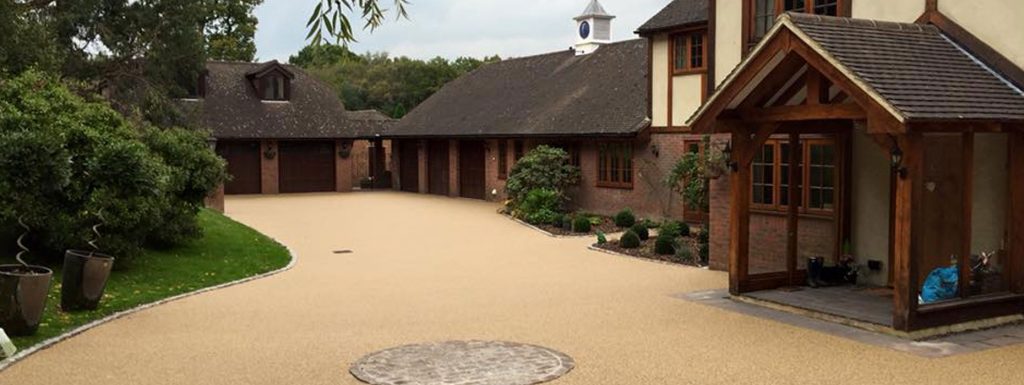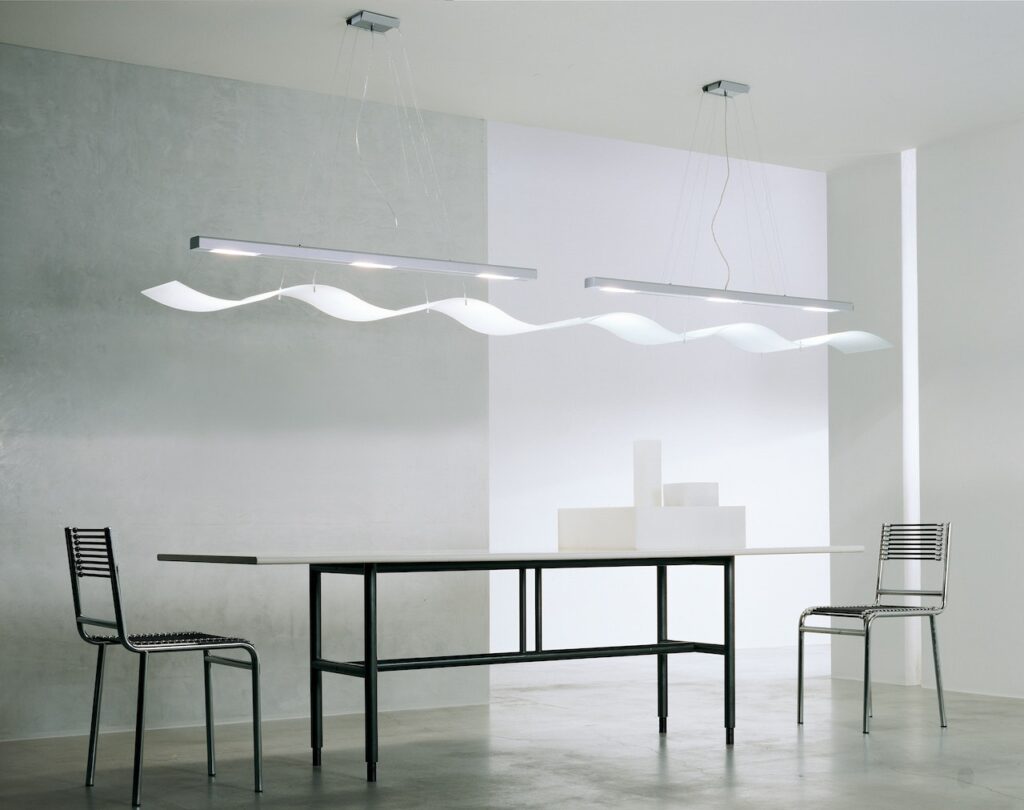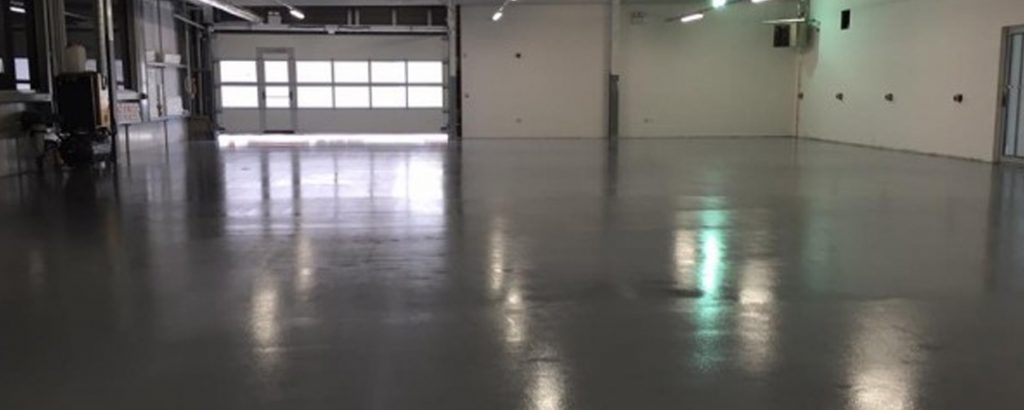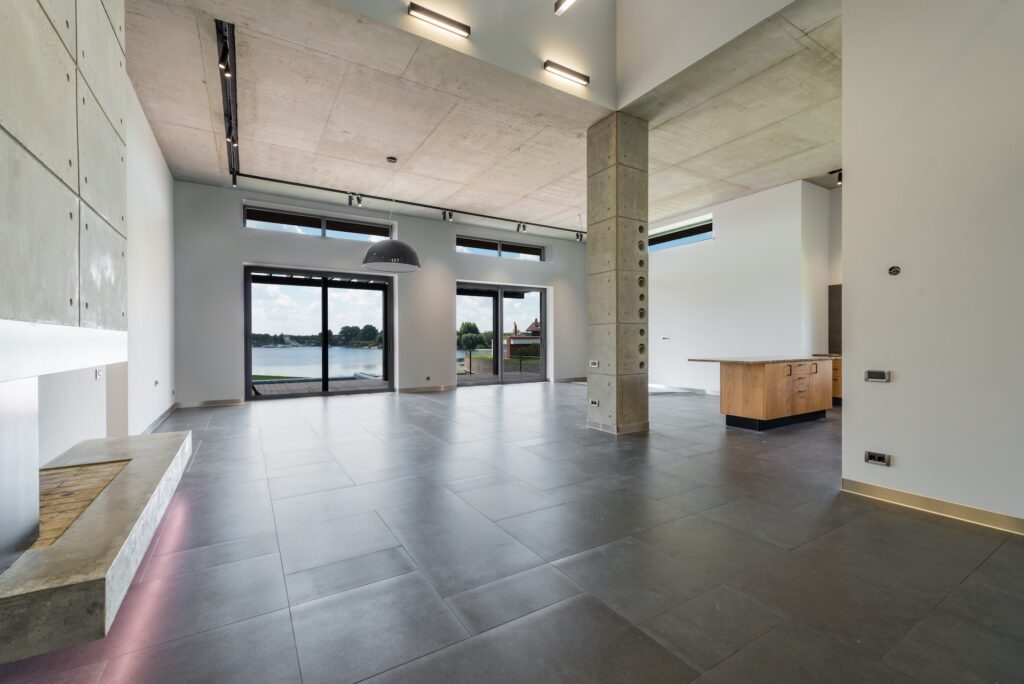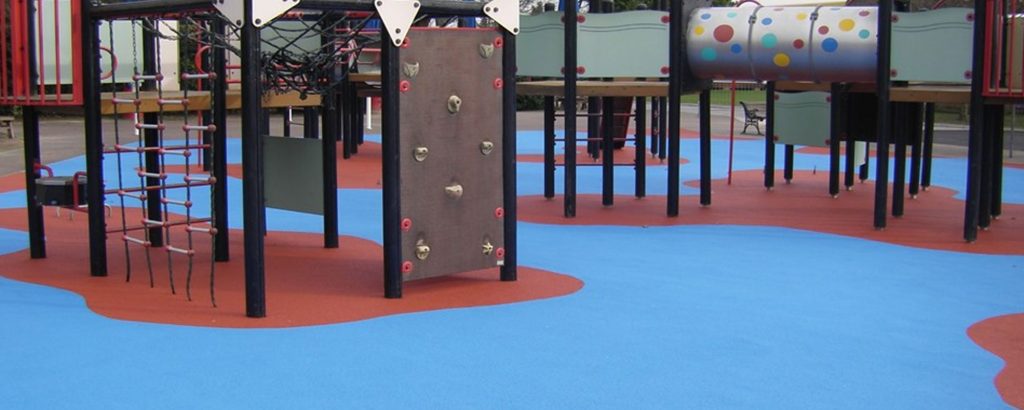Resin flooring is made of synthetic resin, used to coat flooring surfaces or if you require a little more thickness, a self levelling resin. Resin flooring offers long-term durability against cracks and damage, along with any other types of long-term wear and tear. Heat resistant and water-resistant, most forms of resin flooring are suitable for both domestic and professional use.
There are typically two types of resin flooring available, epoxy resins and Polyurethane resins.
Is resin flooring any good? Pros and cons of resin flooring
Resin flooring is a great flooring choice if you’re looking for something that is relatively affordable, durable and easy to maintain. Here are some of the major pros and cons of resin flooring:
Resin Flooring: Pros
Resistant
Resin flooring offers long-lasting protection (10 – 20 years) and is resistant to most types of flooring damage: cracks, moisture, chemicals and various spills. Resin flooring is also heat resistant and water resistant, making it ideal for industrial environments and domestic environments alike.
Easy to clean
Resin flooring is impenetrable by bacteria and germs, making it easy to clean and simple to sanitise. Many hospitals and medical environments use resin flooring for this reason.
Sleek
As they’re easy to clean, resin floorings look sleek and professional when maintained correctly. Unlike carpets or wood floorings, resin floorings don’t develop signs of wear in the same way. If you’re looking for a chic and sophisticated type of flooring for your business, resin flooring is a great option.
Durable
Resin flooring, are some of the most long-lasting and durable types of hard flooring, beaten only by concrete or stone when it comes to their longevity. This is due to their super resistance to most forms of water damage, heat damage and their durability even with heavy use.
Cheap
When it comes to hard flooring, resin flooring is also a relatively cheap option in comparison with other types of hard flooring such as concrete, stone and marble. Resin flooring is simple to install (as it can be placed over other types of flooring) rendering your overall costs cheaper.
Resin Flooring: Cons
Can be slippery
While resin flooring is durable, resistant and cheap, one of the major downsides is that it can be slippery. If you’re operating within a dangerous environment (such as a factory or environment where heavy objects or machinery are often used) you’ll want to take this into consideration.
Faulty installations
It’s imperative that your resin flooring is installed correctly. Poorly installed resin floorings won’t offer the same level of protection and resistance to damage, and won’t last as long as a resin floor that has been correctly installed.
How long do resin floors last?
While resin flooring is more durable than other types of hard floors, a replacement will be necessary after around 10-20 years, depending on the type of resin flooring that you opt for.
The good news is that due to its superior resistance, heavy use or general wear-and-tear won’t massively impact the durability of your resin floor – for example, in the way that a carpet would be. That being said, if your resin floor is subject to lots of non-consequential damage over time, it might last a little less than its predicted lifespan.
If you’re looking for the most durable and long-lasting resin floor, epoxy flooring offers higher resistance and can last for up to 20 years with proper care and maintenance.
Is resin flooring suitable for kitchens?
Yes! Resin flooring makes for a great choice for a domestic kitchen, as it is heat proof and waterproof – no more worries about spilling juice, oils, sauces or wine and staining your kitchen floor! In addition, due to its easy cleaning, resin flooring is probably one of the safest types of hard flooring for a kitchen, as it can be easily sanitised before and after use.
Resin flooring is also a great option for a home kitchen due to its sleek and chic appearance, with options for colour customisation and design.
Is resin flooring good for bathroom?
Perfect for an environment where water damage or leaks are common, resin flooring makes for an ideal bathroom floor. Not only is it water-resistant, but resin flooring is also antibacterial, so there’s no possibility of bacteria sneaking through the cracks and causing mould in your bathroom.
As resin flooring can be applied to some existing bathroom surfaces, it’s also a great way to renovate your bathroom without forking out tremendous renovation costs. Note: when it comes to coating your bathroom floor with resin flooring, you will need to be aware of its slipperiness when taking showers and baths.
What is the difference between epoxy and resin flooring?
If you’re wondering “what’s the difference between epoxy and resin flooring?” they’re pretty much the same thing – almost! In fact, epoxy flooring is a type of resin flooring known for its durability and heightened resistance to external damage or wear-and-tear.
A better question might be: what’s the difference between epoxy and polyurethane resin flooring – these are the two most common types of resin flooring, with a couple of differences marking them apart.
Overall, epoxy flooring is known to be a little cheaper when it comes to resin flooring. That being said, it can be subject to breakages as it’s more brittle than polyurethane.
In general, polyurethane resin flooring is more resistant to abrasive chemicals, and typically lasts much longer than epoxy flooring. However, one major con is the increased price: while polyurethane flooring will last longer, it won’t’ be as affordable as epoxy flooring. Learn more about industrial epoxy flooring.
How do you care for a resin floor?
As it’s impenetrable by bacteria, caring for a resin floor is pretty simple and easy. Weekly maintenance – i.e. cleaning – will be necessary to keep the floor gleaming and free of any dust, spills and stains.
You can dust a resin floor to get rid of any loose dirt, while using a wet mop and brush to deal with spillages and stains. If your resin flooring is frequented daily by lots of passage, you might want to clean it nightly.

